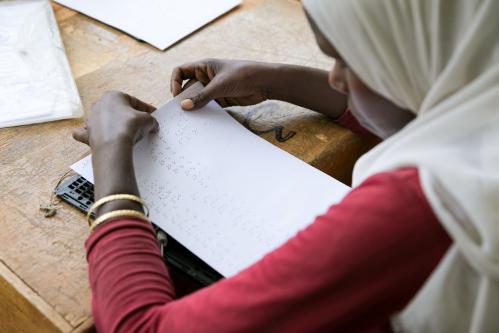

8:30 am EST - 9:30 am EST
Past Event
While there has been increasing recognition that there can be no “one-size-fits-all” approach to achieving gender equality in or through education, policy and practice struggle to provide the type of diverse and complex responses that are needed, particularly for girls and young women who face multiple and intersectional forms of discrimination and marginalization. Policies are often designed based on “typical” girls or “chosen” voices that may not represent or attend to the experiences of the most marginalized.
At the same time, girls and young women facing intersectional exclusions are forced to navigate fragmented systems that provide incomplete supports and only partially address the barriers they face to full participation and equal exercise of their education, social, economic, health and other rights. How can we shift away from “one-size-fits-all” or fragmented approaches, and develop more holistic and inclusive policy responses for marginalized girls and young women? Can the answer to this question be found in centering girls and women as actors themselves within research, policy, and practice?
On December 4, the Center for Universal Education (CUE) hosted the Research and Policy Symposium on Gender Equality in and through Education. The event featured the 2024 Echidna Global Scholars discussing their research on the challenges marginalized girls and women face in education across various contexts. Topics included inclusive education for girls with disabilities in post-conflict Tigray (Ethiopia), women’s leadership within the education system in Tanzania, sexual and reproductive health education for adolescent girls in Nepal, and second-chance education to overcome structural inequalities in Mexico. The scholars explored the critical need to not only address the unique challenges of girls and women in more holistic ways, but also how girls and women themselves can be centered in research, policy, and action to promote gender equality in and through education.
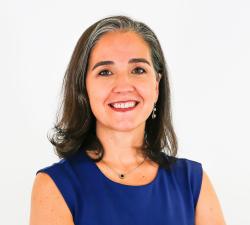
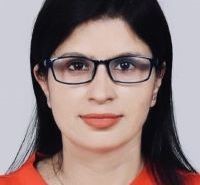
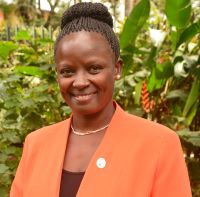

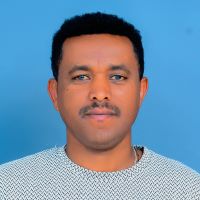
Moderator

For those interested in delving deeper into the scholars’ individual research, CUE encourages registration for virtual workshop discussions on December 4th and 5th:
December 4
11:00 am - 12:30 pm
Counting down to 2030, Tanzania has made significant strides in gender equality in education, achieving parity in enrollment at the primary and lower secondary levels. However, gender equality in leadership remains a challenge. Women’s representation and participation in decision-making roles at the school level is limited, with only 19% of secondary schools in rural areas and 36% in urban areas led by women. As Tanzania continues to accelerate its efforts towards gender-transformative education, it is crucial to consider how policies and practices can better support the advancement of women in leadership roles within the education system itself. What is holding us back?

December 5
8:00 am - 9:30 am
This workshop will focus on adolescent agency for sexual and reproductive health rights in and through education, drawing on participatory action research with adolescent girls in Nepal’s public schools. The workshop will examine the process and outcomes of participatory, school-based initiatives that engage girls in reclaiming their identity as agents of change in challenging the social stigma surrounding SRHR through collaborative activities such as workshops, creative writing, and different artifacts. It will also explore how adolescent girls can create a safe school environment where they can discuss SRHR issues openly and how policymakers can use this approach while designing and implementing curriculum, pedagogy, and teacher training programs.

December 5
10:00 am - 11:30 am
Sustainable development goals 4 and 5 call for inclusive and equitable quality education for all and gender equality, yet girls with disabilities continue to be excluded from these efforts. In Tigray, owing to war and subsequent crises, more than 57% of the nearly 2.5 million children in the region are out of school, and the extent of exclusion of girls with disabilities is even more extreme, owing to sexual- and gender-based violence. How can we understand the intersectional barriers girls with disabilities face in high-poverty, post-conflict settings? And how can policy and practice more effectively ensure the inclusive education that is necessary to ensure gender equality for girls with disabilities in and through education?

December 5
12:00 pm - 1:30 pm
Education policies are pivotal in shaping pathways to women’s economic participation, yet how effectively do they support marginalized women in transitioning to economic autonomy? This workshop will delve into how policymakers’ mindsets influence the implementation and outcomes of second-chance education policies. Drawing on research from Mexico, participants will explore an innovative framework to challenge assumptions and enhance inclusivity in policy design, adoption and implementation, ensuring they better serve marginalized women. Join us to rethink education’s role in fostering gender equality, lifelong learning, and equitable economic opportunities for ALL women.
____________________________________________
This workshop was hosted in Spanish with live translation into English.


Mebrahtom Tesfahunegn
December 18, 2024

Magdalena Rodríguez Romero
December 16, 2024
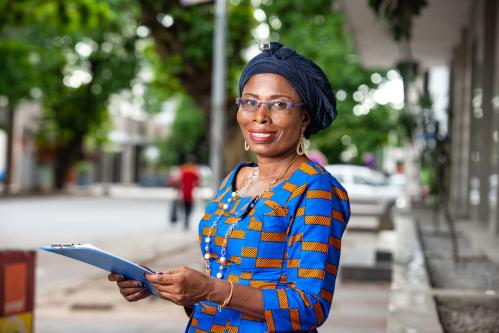
Lydia Wilbard
December 3, 2024